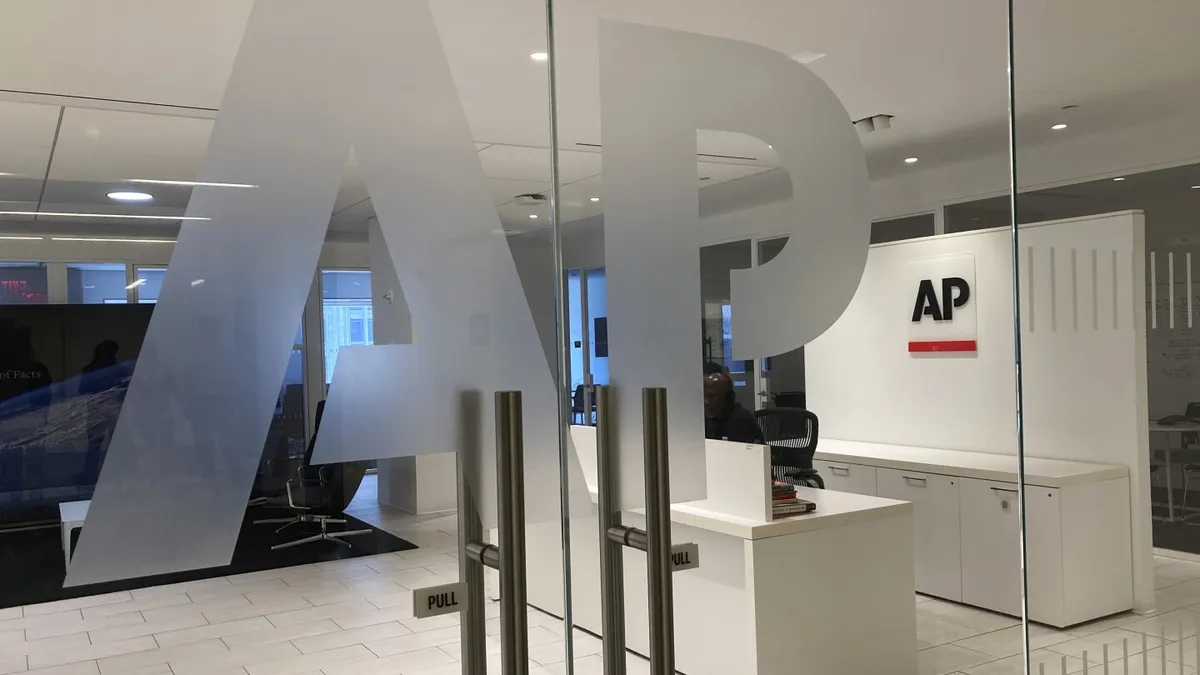
A federal judge has ordered the White House to restore The Associated Press’s full access to cover presidential events, emphasizing the importance of the First Amendment. U.S. District Judge Trevor N. McFadden, appointed by former President Donald Trump, ruled that the government cannot retaliate against the news organization for its editorial decisions. This ruling represents a significant victory for the press at a time when the White House has been increasingly challenging media outlets.
Judge McFadden asserted that the government must not discriminate against journalists based on their viewpoints. “Under the First Amendment, if the Government opens its doors to some journalists—be it to the Oval Office, the East Room, or elsewhere—it cannot then shut those doors to other journalists because of their viewpoints,” he stated. This ruling underscores the constitutional guarantee of free speech and press freedom, which is vital for all Americans.
It remains uncertain whether the White House will promptly comply with Judge McFadden's ruling. He has delayed the implementation of his order for one week, allowing the government time to respond or appeal. Since February 11, The Associated Press has been prohibited from joining a select group of journalists covering President Trump in the Oval Office or aboard Air Force One, although they have had sporadic access to events in the East Room.
AP spokeswoman Lauren Easton expressed gratitude for the court’s decision, stating, “Today’s ruling affirms the fundamental right of the press and public to speak freely without government retaliation.” This sentiment highlights the crucial role that a free press plays in a democratic society.
White House press secretary Karoline Leavitt, who was named in the lawsuit, did not provide immediate comments regarding the ruling. The AP had requested the court to determine that Trump violated its constitutional rights by retaliating against the organization due to its editorial choices. Previously, McFadden had declined the AP’s request for an injunction to reverse the changes that limited its access.
Historically, The Associated Press has been included in coverage “pools” for significant presidential events, including those held in the Oval Office and on Air Force One. However, Judge McFadden clarified that his ruling does not guarantee permanent access for the AP. “The Court does not order the government to grant the AP permanent access to the Oval Office, the East Room or any other media event,” he noted, emphasizing fairness in treatment compared to other wire services.
The judge's ruling does not prevent government officials from selecting which media outlets to engage with or which journalists to respond to during press conferences. During a March 27 court hearing, it was acknowledged that Trump’s administration sought to control the narrative surrounding media access, arguing it was their discretion to determine who could question the president.
Judge McFadden pointed out that the ongoing dispute with the AP has allowed new media outlets to thrive at the expense of traditional journalism. In his decision, he remarked, “Little else has changed.” The AP’s style guide is influential worldwide, and the organization has committed to using “Gulf of Mexico,” despite Trump's attempt to rename it the “Gulf of America.”
Julie Pace, the AP's executive editor, emphasized the broader implications of the lawsuit, stating, “For anyone who thinks The Associated Press’ lawsuit against President Trump’s White House is about the name of a body of water, think bigger. It’s really about whether the government can control what you say.” This statement reflects concerns over press freedom and the potential for government overreach.
The AP's ability to cover the president has been hindered, leading to delays in news transmission. During the legal proceedings, the AP’s chief White House correspondent testified about the negative impacts of the access ban. AP’s legal representative stated that the organization had already lost a significant advertising contract due to the limitations on its coverage.
As the AP continues to navigate this challenging landscape, it remains committed to its mission of delivering timely news. The ruling by Judge McFadden signifies a crucial affirmation of press rights, yet it also highlights the ongoing tension between the government and media organizations. The Associated Press has been part of the journalistic landscape since 1846, and its role in ensuring a free and informed public remains more important than ever.